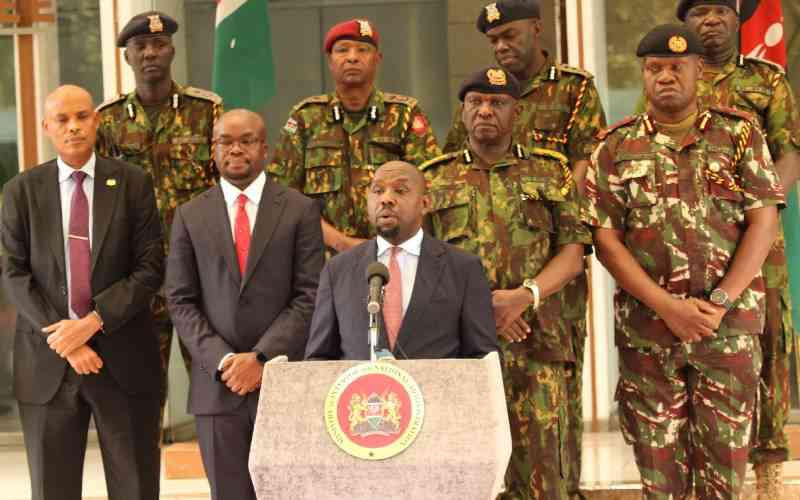Stakeholders raise alarm over environmental impact of extractive sector, call for just energy transition
Stakeholders in Nigeria’s extractive industries have called for urgent reforms in the country’s approach to resource governance, stressing that while oil, gas, and mineral wealth have powered economic growth for decades, they have also left a legacy of environmental degradation, public health crises, and social inequality.
This concern formed the core of discussions at a recent webinar jointly organised by the Nigeria Extractive Industries and Transparency Initiative (NEITI), Centre for Journalism Innovation and Development (CJID), and Extractive360.
The virtual event, which is the first in a new webinar series focused on energy transition and governance, brought together policymakers, industry experts, and civil society voices to interrogate the cost of extraction and chart pathways to a just and inclusive energy future.
Speaking at the event, the Executive Secretary of the NEITI, Orji Ogbonnaya Orji, said the prosperity gained from the extractive industries had come at a heavy price for the country.
Mr Orji, who was represented by NEITI’s Assistant Director, Energy and Mining, Chineye Okechukwu, highlighted the ecological and social damage inflicted by decades of unregulated extraction.
He said: “For decades, the extractive industries have been the backbone of Nigeria’s economy, generating substantial revenues, creating jobs, and funding national development. But this prosperity has come at a high cost: environmental degradation, polluted water bodies, gas flares that scar the night skies, and communities bearing the disproportionate burden of poor health outcomes
“Let’s be frank, our host communities are hurting. From chronic respiratory illnesses due to gas flaring to the silent suffering caused by contaminated drinking water and ecosystem collapse, the extractive sector’s footprint has been both expansive and uneven. Children, the elderly, and women bear the brunt of this neglect.”
Mr Orji called for a paradigm shift as Nigeria navigates its energy transition, noting that the energy transition presents an opportunity, ”perhaps our last, best chance to rewrite this story”.
“It is a moment to reimagine our economy, recalibrate our development model, and redress long-standing injustices. It is not just about cutting emissions. It is about healing our environment, restoring dignity to host communities, and building a more inclusive, healthier Nigeria,” Mr Orji said.
Also speaking at the webinar, the President of the Miners Association of Nigeria (MAN), Dele Ayanleke, said the lack of institutional support was hindering the formalisation of artisanal and small-scale miners, many of whom contribute to environmental degradation due to poor practices.
Mr Ayanleke recalled that during the 2019 edition of Nigeria Mining Week, the association had attempted to assist the federal government with data capture and profiling of informal miners ahead of the conference. However, he noted that the association lacked the resources to replicate such initiatives across the country’s many mining communities.
“Our members are present in virtually all mining locations and are well-positioned to support government efforts in formalising artisanal miners into productive units,” he said. “Doing so will directly address environmental concerns. Many of these miners operate without guidance, leading to degradation. With proper identification and support, they can be educated on sustainable practices.”
In his remarks, CJID’s Executive Director, Akintunde Babatunde, argued that Nigeria’s problem was not the lack of resources but weak governance structures that have failed to translate resource wealth into equitable and sustainable development.
Mr Babatunde expressed that “extracting resources shouldn’t just be about how much oil or minerals we produce, but about how well we govern them, who benefits, who bears the costs, and whether we are protecting the long-term interests of both people and the planet”.
He warned that the ongoing push to extract critical minerals needed for clean energy technologies could replicate the inequalities and environmental harm of the oil era if reforms are not implemented.
“As we move further into the discourse around energy transition, new and critical questions continue to emerge. How do we ensure that Africa’s abundance of critical minerals does not reproduce the same patterns of underdevelopment and inequality that characterised past oil booms? How do we build institutional capacity for effective oversight and climate-smart resource management? How do we empower communities, not just with a voice, but with real, meaningful participation in decisions that affect their land, their environment, and ultimately their future?
“And how do we harness the power of accountability journalism, open data, and multi-stakeholder dialogue to close the persistent governance gaps that allow extractive industries to operate without sufficient transparency, often to the detriment of communities and ecosystems?” Mr Babatunde questioned.
Tengi George-Ikoli, Nigeria Senior Officer at the Natural Resource Governance Institute (NRGI), emphasised that Nigeria’s greenhouse gas emissions and gas flaring record could affect how it is perceived internationally, especially as countries introduce tighter climate-related trade policies.
She asked “Specifically, if gas is our ‘big bet,’ how are we addressing the emissions generated by that sector, especially considering the longstanding challenges with gas flaring and its well-documented impacts on health, livelihoods, and the environment?”.
Ms George-Ikoli noted that while Nigeria had introduced several policies in the upstream sector, major gaps remained in the midstream and downstream segments. “More needs to be done to ensure comprehensive oversight and regulation across the entire value chain,” she said.
READ ALSO: Zambian-American writer, Iris Nwanza, launches corruption-themed novel, ‘The Lion’s Den’
Mohammed Aminu, a policy manager with the Clean Air Task Force, warned that critical minerals, though central to clean energy technologies, could also pose new environmental and social challenges if not sustainably managed.
“Critical minerals like lithium, cobalt, and nickel are essential for the energy transition, but their extraction also comes with environmental risks. If not managed sustainably, mining activities could lead to displacement, degradation, and emissions—defeating the purpose of clean energy”, he said.
He cited the Clean Air Task Force’s efforts to conduct leak detection and repair campaigns in Delta State, using optical gas imaging to visualise methane emissions, as part of ongoing advocacy to promote regulatory oversight.
Mr Aminu also noted that international oil companies were beginning to pivot toward critical minerals, making it essential for host countries like Nigeria to prioritise environmental and governance safeguards in new mining ventures.











